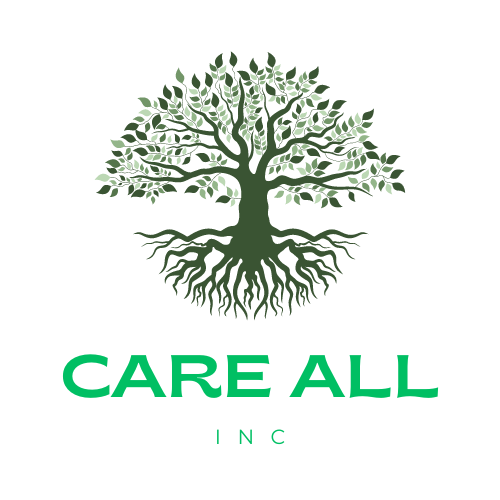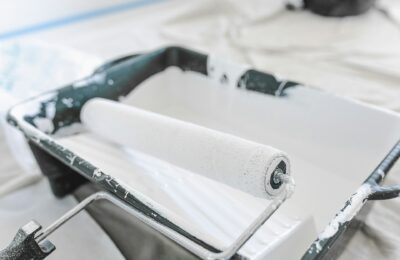Modern households depend heavily on various appliances to maintain daily routines and comfort. From refrigerators keeping food fresh to washing machines handling laundry loads, these essential devices work tirelessly behind the scenes. However, many homeowners overlook the critical importance of regular maintenance until something breaks down.
Proper appliance care extends far beyond simple cleanliness. It involves understanding how each device operates, recognizing early warning signs of potential problems, and implementing preventive measures that can significantly extend equipment lifespan. This comprehensive approach not only saves money but also ensures your home runs smoothly without unexpected disruptions.
Regular maintenance practices can reduce energy consumption, improve performance, and help you avoid the inconvenience of sudden breakdowns. When appliances operate efficiently, they contribute to better home efficiency while reducing your environmental footprint. The investment in routine care pays dividends through lower utility bills and fewer emergency repair calls.
Understanding Your Home’s Essential Systems
Kitchen Appliances: The Heart of Daily Operations
Kitchen appliances work harder than most other household equipment. Refrigerators run continuously, dishwashers handle multiple cycles weekly, and stoves endure high temperatures regularly. Each device requires specific attention to maintain optimal performance.
Refrigerators benefit from regular coil cleaning and temperature monitoring. Clean coils allow the compressor to work more efficiently, reducing energy consumption and preventing overheating. Check door seals monthly to ensure they create proper barriers against warm air infiltration.
Dishwashers require filter cleaning and periodic deep cleaning cycles. Food debris can accumulate in filters, reducing cleaning effectiveness and potentially causing drainage problems. Monthly maintenance prevents buildup that could lead to expensive repairs.
Laundry Room Equipment: Managing Heavy Workloads
Washing machines and dryers handle substantial loads and frequent use. These appliances face unique challenges from lint buildup, mineral deposits, and mechanical wear from constant motion.
Front-loading washers need regular door seal cleaning to prevent mold and mildew growth. The rubber gaskets trap moisture and debris, creating ideal conditions for bacterial growth if not maintained properly.
Dryers require lint removal from multiple locations beyond the obvious lint trap. Exhaust vents, internal drums, and external vent covers all accumulate lint that can reduce efficiency and create fire hazards.
Implementing Preventive Maintenance Schedules
Monthly Maintenance Tasks
Establishing monthly routines ensures consistent care without overwhelming your schedule. These tasks address immediate needs while preventing long-term problems.
- Clean refrigerator coils using a vacuum or brush attachment
- Inspect dishwasher filters and clean if necessary
- Check washing machine hoses for bulges, cracks, or leaks
- Clean dryer lint traps and inspect exhaust vents
- Test the garbage disposal function and clean with ice cubes
- Examine oven door seals and clean interior surfaces
Monthly inspections allow you to catch problems early when repairs are typically less expensive and less disruptive to your routine.
Seasonal Deep Cleaning Projects
Quarterly maintenance addresses areas that don’t require frequent attention but can cause significant problems if neglected. These tasks often require more time and effort but provide substantial benefits.
Spring cleaning should include refrigerator deep cleaning, including removing all items and cleaning interior surfaces. Check expiration dates and organize storage to improve efficiency.
Summer preparation involves air conditioning unit maintenance, including filter replacement and outdoor unit cleaning. Clean units operate more efficiently during peak usage periods.
Fall maintenance focuses on heating system preparation and appliance winterization. Check furnace filters, clean heat pump coils, and inspect ductwork for leaks or damage.
Winter tasks include ensuring proper ventilation for gas appliances and checking for ice buildup around outdoor units.
Recognizing Warning Signs and Taking Action
Early Detection Saves Money
Understanding warning signs helps you address problems before they become expensive repairs. Small issues often provide clear indicators that maintenance is needed.
Unusual noises frequently signal mechanical problems. Grinding sounds from disposals suggest foreign objects or blade problems. Squealing from dryers indicates belt or bearing issues. Clicking from the refrigerator may suggest compressor problems.
Performance changes often indicate efficiency problems. Dishes not cleaning properly suggest dishwasher filter problems or spray arm blockages. Clothes taking longer to dry indicate lint buildup or exhaust problems.
Energy consumption increases without usage changes, suggesting efficiency problems. Monitor utility bills for unexpected increases that might indicate appliance problems.
When to Call Professionals
Some maintenance tasks require professional expertise to prevent costly mistakes or safety hazards. Electrical work, gas connections, and complex mechanical repairs should be handled by qualified technicians.
Appliance care professionals like those at Maple Leaf Appliances bring specialized knowledge and proper tools to diagnose and repair complex problems safely. They can identify issues that homeowners might miss and prevent costly repairs through proper maintenance.
Professional maintenance often includes warranty protection and guarantees that DIY approaches cannot provide. This protection offers peace of mind and financial security.
Creating Cost-Effective Maintenance Strategies
Budgeting for Appliance Care
Regular maintenance costs significantly less than emergency repairs or premature replacements. Developing maintenance budgets helps you plan for routine expenses and avoid financial surprises.
Annual maintenance costs typically range from one to three percent of appliance replacement costs. This investment can extend appliance life by 50 percent or more while reducing energy consumption.
Setting aside monthly amounts for maintenance creates funds for both routine care and unexpected repairs. This approach prevents maintenance delays that could lead to more expensive problems.
DIY vs Professional Services
Many maintenance tasks can be performed safely by homeowners with basic tools and knowledge. However, certain tasks require professional expertise to avoid safety hazards or warranty violations.
Safe DIY tasks include filter cleaning, exterior cleaning, basic inspections, and simple adjustments. These activities require minimal tools and pose little risk when performed correctly.
Professional services should handle electrical repairs, gas line work, refrigerant systems, and complex mechanical repairs. These tasks require specialized tools, knowledge, and licensing to perform safely.
Maximizing Energy Efficiency Through Proper Care
Understanding Energy Consumption Patterns
Well-maintained appliances consume significantly less energy than neglected equipment. Understanding how maintenance affects efficiency helps you prioritize tasks for maximum impact.
Dirty refrigerator coils can increase energy consumption by 20 percent or more. Clean coils allow heat transfer efficiently, reducing compressor workload and energy usage.
Clogged dryer vents can double drying times, dramatically increasing energy consumption. Clean vents allow proper airflow, reducing drying time and energy usage.
Dirty oven interiors reflect heat poorly, requiring higher temperatures and longer cooking times. Clean surfaces reflect heat efficiently, reducing energy consumption.
Home Efficiency Integration
Appliance maintenance contributes to overall home efficiency by reducing energy waste and improving indoor air quality. Properly maintained equipment operates quietly and efficiently, enhancing comfort while reducing costs.
HVAC system maintenance affects the entire home comfort and efficiency. Clean filters and coils improve airflow and reduce energy consumption while maintaining consistent temperatures.
Water heater maintenance reduces energy consumption and extends equipment life. Sediment removal and temperature optimization can reduce energy costs significantly.
Planning for Long-Term Success
Documentation and Record Keeping
Maintaining records of maintenance activities, repairs, and performance helps you track appliance condition and plan future needs. Documentation also supports warranty claims and resale value.
- Keep purchase receipts and warranty information organized
- Record maintenance dates and activities performed
- Note performance changes or unusual behaviors
- Track energy consumption patterns
- Document repair histories and costs
Good records help you make informed decisions about repairs versus replacements and identify patterns that might indicate recurring problems.
Building Maintenance Habits
Successful appliance care requires consistent habits rather than sporadic intensive efforts. Building routines makes maintenance automatic and reduces the likelihood of neglect.
Start with simple daily habits like wiping down surfaces and checking for obvious problems. Add weekly tasks gradually as routines become established.
Monthly deeper maintenance becomes easier when daily and weekly habits are well-established. The foundation of good habits makes comprehensive care manageable and effective.
Your Path to Reliable Home Operations
Regular appliance care represents one of the most effective investments homeowners can make. The time and effort spent on routine maintenance pays dividends through extended equipment life, improved efficiency, and reduced repair costs.
Starting with simple daily habits and gradually building comprehensive maintenance routines creates sustainable practices that protect your investment and ensure reliable operation. When professional help is needed, working with experienced technicians who understand proper maintenance techniques ensures your appliances receive the care they deserve.
The peace of mind that comes from knowing your appliances are well-maintained and unlikely to fail unexpectedly is invaluable. This reliability allows you to focus on enjoying your home rather than worrying about potential breakdowns. To prevent costly repairs and maintain optimal home efficiency, implement these maintenance strategies from https://mapleleafappliances.ca/ consistently and seek professional assistance when needed.






